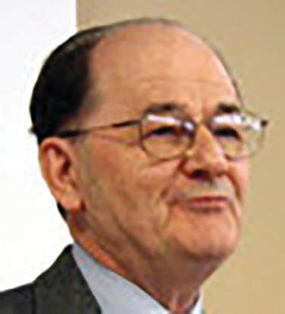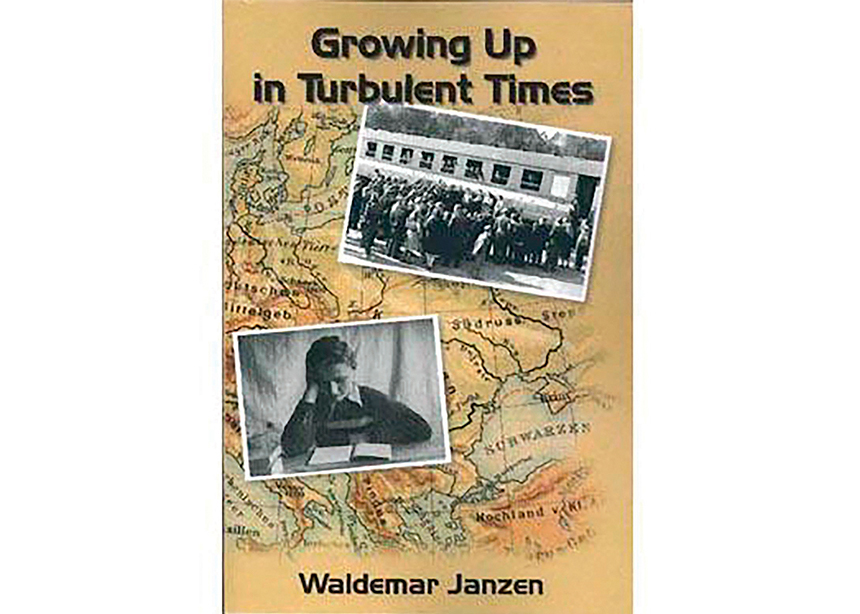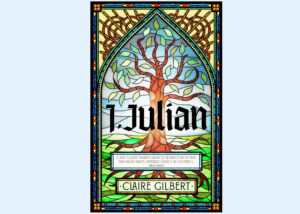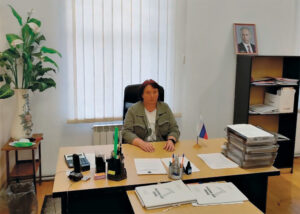At the age of 85, I am probably one of the few survivors of the German occupation of Ukraine/Russia from 1941 to 1943 who still have clear personal memories of that time.
When the German army occupied Chortitza, Ukraine, where I lived, we Mennonites were exuberant. I remember vividly the euphoria of being liberated from the brutal Stalinist regime. Churches were opened again, friends could meet in groups, and Christmas could be celebrated, and the Soviet secret police needed to no longer be feared.
If Nazism movements developed in the 1930s and ’40s in Brazil, Canada, Germany, the Netherlands and Paraguay, why not Ukraine? Because the Mennonites there—including me at a young age, but also the adults around me—had heard only vaguely whispered rumours about the developments in Germany. All news in Stalinist Soviet Russia was strictly censored.
From our perspective, we welcomed the Germans as our deliverers with open arms, not the Nazis. For the adults around me, the term “Germans” evoked memories from the “good old days” before the Russian Revolution, the anarchy and the rule of communism. They recalled the German literature they had studied in school, German stories, poems and folk songs; the German Luther Bible, which could now be taken from hiding; familiar German hymns; memories of places in Germany and Switzerland where many leaders had studied theology, literature, medicine, engineering, midwifery and more. This choice of German-language universities and schools was due to their knowledge of the German language and culture; it had nothing to do with the Aryan race or German nationalism.
Such associations must be recognized as the first of two major components essential for forming a correct interpretive context for understanding our welcoming of “the Germans.” The second major component is the terror and cruelty of the Stalinist regime, which had robbed almost every Mennonite family of several members, mostly men, but also many women. We would have welcomed almost any power that had come to deliver us from that brutal rule.
With all his wealth of research, Ben Goossen, the author of Chosen Nation: Mennonites in the Global Era, missed both of these, and replaced them with a hermeneutic of suspicion that characterized all Mennonite connections with Germans and Germany by tarnishing them as complicity with Nazism.
The term “Nazism” in this context, is not historically descriptive, but pejorative. It is the term that the Western Allies and their countries are wont to use when referring to the Hitler-era by its most heinous crimes, foremost among these the Holocaust, once its full extent had become known. To lump terms like “German,” “heimat” (home country), and “vaterland” (fatherland) together under “chosen nation” and “Nazism” is a gross misunderstanding of the connotations these terms held for us Mennonites then, and also carry generally in the German language. Goossen is not cognizant of how hurtful such use of “Nazi/Nazism” is for people like me, and probably can’t be expected to be.
Did we, then, side with Germany and fail to recognize the Hitler ideology for what it was eventually shown to be? Our disappointment grew gradually during the two years of German occupation.
The killing of Jews in Ukraine became known, sooner by some Mennonites and eventually by more and more. After the German army came, the party-based civic administration gradually showed us the true nature of the regime: the full extent of the murder of the Jews, and the notion of racial superiority, including the downgrading of Ukrainians and others as inferior races. This process took time—although two years is not a long time in the course of history—and occasioned much disappointment among Mennonites.
The older adults, most of them women with young children—the husbands having been imprisoned, exiled and often executed—suffered severely under the burden of disappointment, as did countless Germans in Germany itself. And yet we were deeply grateful to the retreating German army for making every effort to help us escape from the Red Army to Germany, and to the German people who accepted us refugees into their defeated, devastatingly bombed and impoverished country.
In later years, I have read more than 50 books authored by eye witnesses of the events I am describing, or by their immediate family members. But in Goossen’s register of names I find almost none of these authors. Not all of them were scholars, although many were, but most were eye witnesses. Goossen’s cavalier disregard of them is akin to a “historian” of the Holocaust who would disregard the testimonies of Holocaust survivors!
I do not question his diligence and sincerity, but I find his work seriously deficient in understanding of, and empathy with, the Mennonites in Ukraine and their descendants, as he attempted in his book to awaken them from their supposed “Nazi denialism.”
Waldemar Janzen is a professor emeritus at Canadian Mennonite University in Winnipeg and the author of Reminiscences of My Father: Wladimir Janzen: Teacher, Minister, and Gulag Survivor, published in September 2017, and Growing Up in Turbulent Times.
Read a related story, “Scholars uncover hidden stories of the Holocaust.









Leave a Reply
You must be logged in to post a comment.